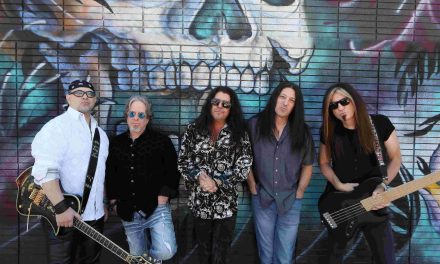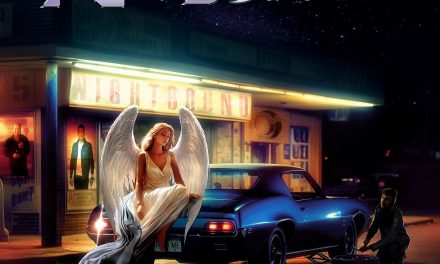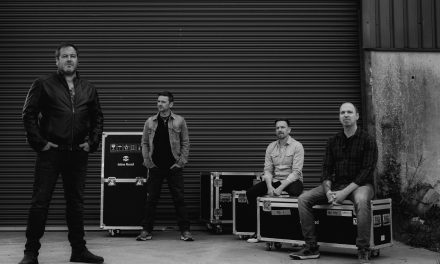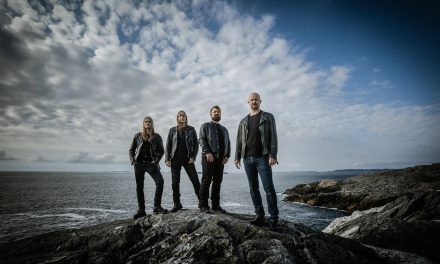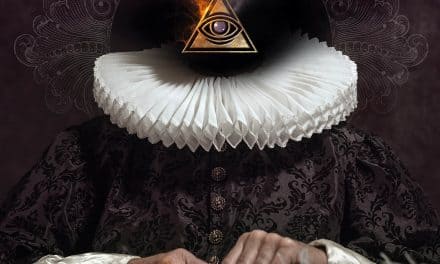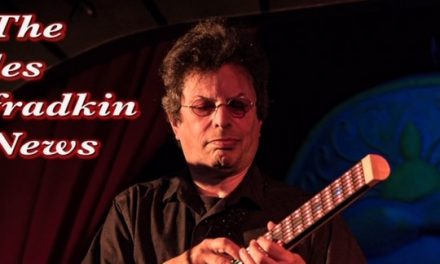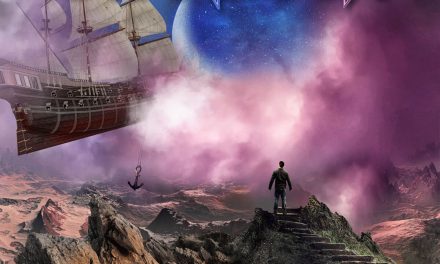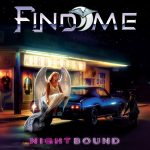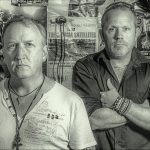
Into The Ultraviolet with Misery Signals
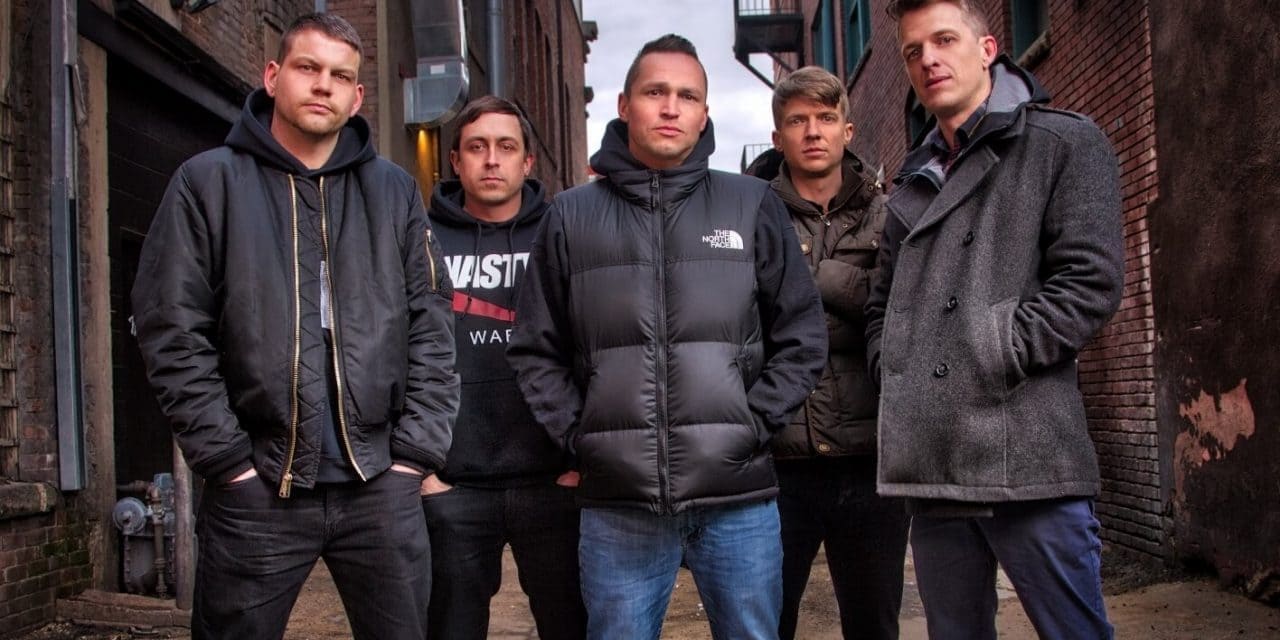
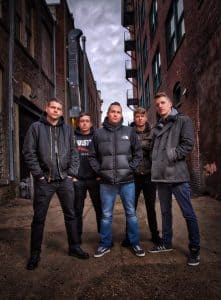 Into The Ultraviolet with Misery Signals
Into The Ultraviolet with Misery Signals
Misery Signals has returned with their original lineup, unleashing their fourth studio album entitled Ultraviolet. Featuring the same musicians who created their landmark Of Malice and the Magnum Heart debut, Ultraviolet presents Misery Signals at their most imaginative and intensive. Highwire Daze recently interview guitarist Ryan Morgan to find out more about their Ultraviolet magnum opus, working with the legendary Devin Townsend on several of their albums (including this new one!), releasing music in the middle of a worldwide pandemic, thoughts on the iconic 7 Angels 7 Plagues recordings, and a whole lot more! Read on…
Let’s talk about the new album Ultraviolet. Is there any overall story or concept behind that title first of all?
There are a bunch of thematic things on the record that have to do with the sun and with light. From the outset of this record, we knew we wanted to be making something that was a little more – I guess the lack of a better word – uplifting. We wanted to have some positivity woven into this, and the idea of Ultraviolet is kind of about how there is a light that you cannot see. Right? So there is light beyond what we are capable of taking in, and we just thought that that was kind of a cool way to harken back to the positivity woven into this and all the sun themes that were on the record.
You have a new video Sunlifter; tell me a little bit about that song. And then about the video and the inspiration behind it.
Sunlifter is actually the oldest song on the record. It was written originally during the Absent Light sessions. It was kind of retooled and put onto this record. The song itself is just, my brother Branden and I, wrote it a long time ago. At a time when no one else is really in the band. The song is about striving, ambition, and how sometimes we put all this pressure on ourselves to not be stagnant. The culture kind of puts it all these pressures on us to be out killing it and achieving. And at a lot of times that can be damaging. We can put ourselves through a lot of suffering if we kind of buy into that. I think there is like a subtlety there. And the song is about that balance between doing things in a positive way and kind of letting your own desire to go do things destroy yourself a little bit. Not destroy you but, cause you suffering.
The video itself was filmed – actually the performance video – the part of it where the bands actually playing was filmed at the same time as the River King video. In the same room. We had extra time, and we decided just to jam another song and record it since we had all the resources and the video director was there who is a guy named Benjamin Scot. So we filmed that. The director that did The Tempest video, whose name is Morgan Tedd – he did kind of all the after effects and trippy looking stuff that is in between there. We took both directors who made the other two videos for the record. Morgan Tedd made the video for The Tempest and Benjamin Scot made the video for River King. We just took elements of each and had that work together and make the Sunlifter video.
What has it been like to have all the original members of the band back together again?
That was awesome, man. It was really nice to have this chapter reopened. Because I think, it became evident that we weren’t done with what we wanted to do with this group of people. Particularly working with Jesse. Him leaving after just making one record with us. I know there are a lot of people that were disappointed by that. Parts of us were disappointed as well. That we were not able to follow that down. The fact that we were able to reconcile and get back together and be working together just felt really right. It felt like it was something that needed to happen and was supposed to happen. So yeah, it has been a really good, man. And Stu and Kyle are my best friends. They were not on the last record. It is great to have those guys back and have them be stoked on the music and stuff. It’s all good.
Let’s go back to the first album since you were all on it – Malice and the Magnum Heart. When you look back on that particular album now, what do you think of it in retrospect?
Man, I think a lot of things. It was such a pivotal point for me and for music. That was when it really started, getting traction as a band. So there is so much stuff rolled into that. If we are just talking about listening back to the record and how I feel about the music. Yeah. I still love it. I still love playing those songs. I sometimes think the album gets too much credit in a way like it is almost overrated – like a lot of people point to it as a “pivotal metalcore record” or “genre-defining” and all these big terms and stuff. And I appreciate that. But also, as the maker of the album, you always are going to have your hang-ups about what you wish was different or what you wish is better.
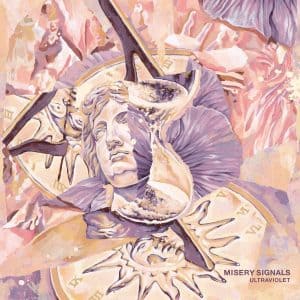
So we worked with Devin on Malice and we worked with Devin on Controller in 2008 – and he also helped produce a small amount of the vocals on this new record. Our schedules did not really align in a way where we were going to be able to work together to record Ultraviolet, but he did help us record the first little bits of vocals – kind of get that started just as an FYI – but working with Devin was great and I cannot say enough good things about the dude. He is so talented and just so humble. He is just like a sweet person, you know what I mean? I really look up to him, because he is also a kindred spirit in a lot of ways in what he like imbues into aggressive music. He has a really wide-ranging kind of influence – he’s all over the map in terms of genres. Way more so than Misery Signals is. The amount of melody and stuff that he puts into his music and the amount of tonality that he puts into it is like really awesome and inspiring, so I am a fan of his just on the level of music – but working with him as a producer is like really cool because he is just like the kindest dude.
The two constant members of Misery Signals are you your brother. What is the best maybe not so best part about having two brothers in the same band?
I imagine it is a different experience for every different set of brothers. But for me and Branden, it is really chill. He is like a super low-key guy and it’s pretty impossible to get into a fight with Branden. Just because he is so easygoing. And also because he is so good at his craft. Right? He is a super dedicated drummer – practices constantly and can kind of do anything on the drums. So there is never really a point where I am trying to push him to do something that he can’t do or does not want to do. Because he is just down for whatever. He just delights in experimenting. So there is not really any tension between Branden and I. We have been playing together since we were 12-13, so it’s just the most natural thing in the world.
What is your favorite Furnace Fest memory? Are you surprised that it’s back?
Dude, I am so stoked that it’s back. I am surprised though. Because it seemed like such an off-kilter, unlikely thing. The way that it is done – like in that big Furnace in Alabama. But probably my fondest memory from Furnace Fest is the year Andrew W. K. played. Andrew W. K. was just like hanging out with everybody. He got shirts from a bunch of bands and he wore literally like over a dozen t-shirts at the same time and during the set, he was just peeling them off. So during the set, he wore like 12 to 20 different band shirts and represents them on stage. Just to be a bro. Just to be a pal. And it was great. He is hilarious.
Are you going to be playing next year? For Furnace Fest?
Yeah. Hopefully.
Yeah, hopefully it happens.
Yeah exactly. If it is happening, I will stoked to be there. We are still billed to play.
Looking back on your work with 7 Angels 7 Plagues. What do you think of those two albums now in retrospect?
Kind of similar things to Malice. The 7 Angels full length gets also a lot of credit. Which is cool and flattering. I don’t want to discredit it by any means. But yeah, I just have that thing where Im wondering if people are looking back with rose-colored glasses. And it’s hard for me to get out of my own experience with the record where part of the recording bums me out. And I wish it was different or whatever. Do you know? I have all sorts of feelings surrounding it. I am really glad that I had those experiences with 7 Angels because that was kind of like cutting my teeth on writing music. I was in bands before that. But that was kind of the first time I felt like I was truly writing. I love all those experiences and I’m super happy for all of them. But yeah, I don’t put on the record too often and just jam out to it.
What has it been like to release new music in the middle of a pandemic and so much social unrest in the world?
Man, yeah, it’s an interesting time, isn’t it?
Yup.
A really interesting time. I feel like there is a need for it. Not to put too fine a point on it. But I think that people are stuck at home. A lot of people and are stuck in weird circumstances. And don’t have money. At least they can listen to some tunes. Have some new music. I think there is more of a need for art than ever. Do you know who David Mitchell is? He’s an author that wrote Cloud Atlas and a bunch of other cool books. He just put out a new book. He has press release regarding it. I thought was really cool. And kind of nailed the points. Like he said that it seems weird to be putting out art at a time where there is so much chaos and so much suffering and so much that we working through. But he acknowledges that artwork and culture – within culture, art and writing is one of the best ways that we like disseminate knowledge and information. I’m not certain that Misery Signals have much to teach anyone. But I think there are elements of emotion that are helpful in there. I think I should really find the quote, because I am kind of butchering it right now.
But David Mitchell, yeah. He nailed it. In saying that, it is as, even though it feels trite sometimes maybe in comparison to something that is going on. Like this is how through our work and through creating things – this is how we spread knowledge, right? That is why I got interested in anything that is going on in the world was through music. Right? I am super grateful to have been listening to Rage Against the Machine in the 90s. To be listening to Racetraitor in the 90s. To the fact that I am a couple of decades ahead of a lot of people that are like “What oh, there’s inequality?” Of course, that is speaking from a pretty privileged perspective. But, I think that’s the experience for a lot of privileged people that might have otherwise been my experience. Just having grown up in the suburbs. No one really shined a flashlight on some of this shit that was going on. I remember vividly being at a show In Chicago, in probably 1999. Sorry to keep kick us back towards memory lane.
But my friend’s band Racetraitor – their singer Mani was on stage and he just said – and I just remember this still because it was the first time anyone had exposed me to this idea. And it was just like he said: “If you’re rich and you’re white the police are here for you. The police are here. They work for you.” I don’t think he said work for you, but he said they are here to protect you. Just that and I was like, holy shit. And that was kind of like a turning point in my psyche. And that is from Hardcore music. I am glad for all my experiences with Hardcore and with Punk Rock that got me interested in reading shit, making changes, and having conversations that were interesting with people.
What goes through your mind that you have been in the same band for 18 years and counting?
Yeah, man. It’s pretty mind-blowing. I think about this all the time now – just at the age that I’m at. I think a lot of people do start to realize how fast time goes. And it’s a conversation I have with people all the time now. Like, holy shit, we are this age! This much time has passed since this happened. It frequently blows my mind.
And what is up next for Misery Signals?
Obviously when the road stuff is doable, that is like our top priority. Getting out and playing. I don’t really know what’s next for us in the bigger picture. But the next thing is to get out doing shows.
Do any of us know what’s up next in this day and age?
Right. Yeah. I think one of the gifts of this time is that people’s certainty has been shaken. I think that’s an important thing. Because a lot of people are kind of like sleepwalking towards whatever’s next. Just assuming they know what’s going to happen. And no one would have been able to predict this. I think it’s a lot healthier to have that mindset – if you have no idea what’s happening. Right? You have no idea what’s going to be next. And if you think you do, you’re probably deluding yourself. So this is shaking that off for a lot of people. I think.
MISERY SIGNALS is:
Ryan Morgan (guitar)
Branden Morgan (drums)
Jesse Zaraska (vocals)
Stu Ross (guitar)
Kyle Johnson (bass)
(Interview by Ken Morton)
Misery Signals on Facebook

